Home>Interior Design>11 Things You Should Never Store In A Pantry, According To Experts
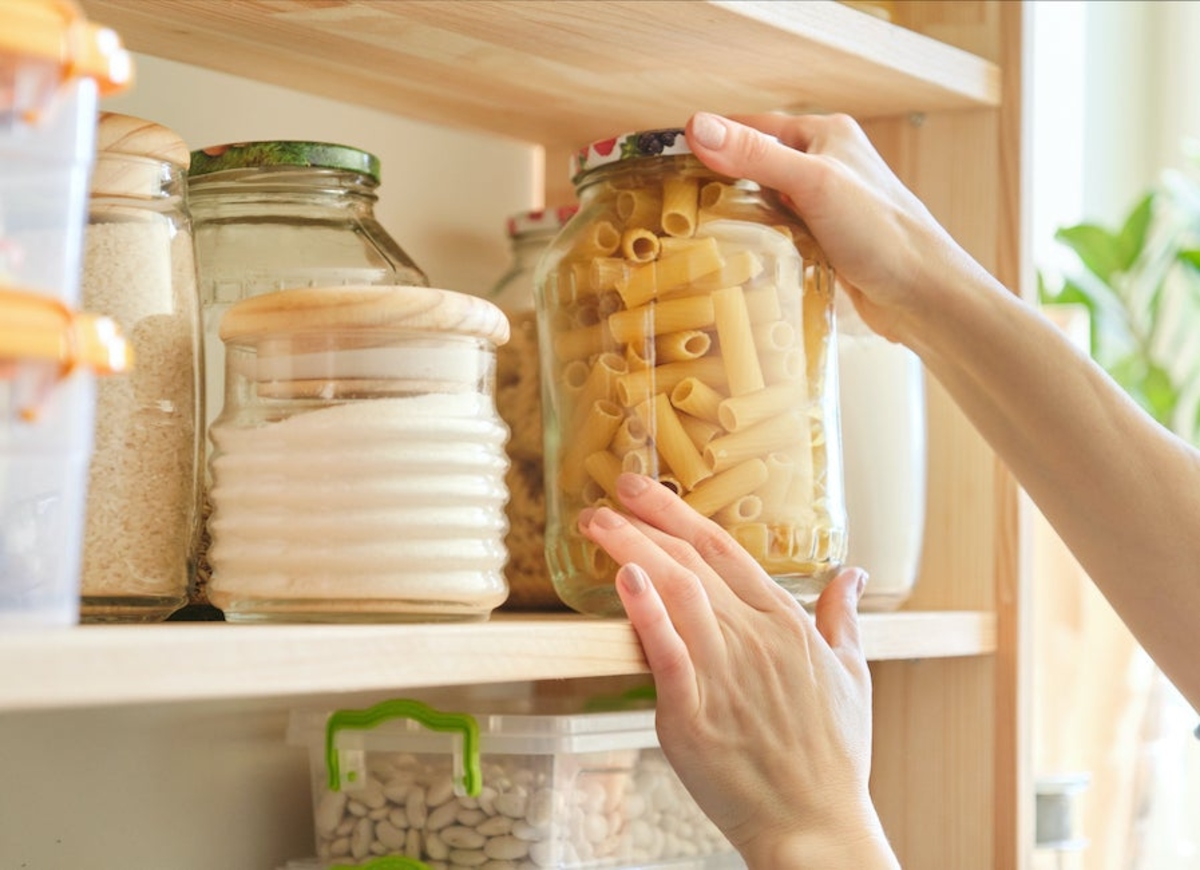

Interior Design
11 Things You Should Never Store In A Pantry, According To Experts
Modified: February 23, 2024
Avoid cluttering your pantry with these 11 items, advised by interior design experts. Keep your space organized and functional by following their recommendations.
(Many of the links in this article redirect to a specific reviewed product. Your purchase of these products through affiliate links helps to generate commission for Storables.com, at no extra cost. Learn more)
Introduction
The pantry is often the go-to storage space for various foods and ingredients in our homes. It provides a convenient and organized place to keep our staples and essentials within easy reach. However, not everything belongs in the pantry, as some items can spoil faster or lose their quality when stored in this environment.
Experts in interior design and kitchen organization recommend being mindful of what items are stored in your pantry to ensure optimal freshness and longevity. In this article, we will explore 11 things that should never be stored in a pantry, according to these experts.
By knowing which items to keep out of the pantry, you can maintain the quality and flavor of your ingredients while also maximizing the shelf life of your pantry staples.
Key Takeaways:
- Keep potatoes, onions, and garlic out of the pantry to maintain their freshness and prevent sprouting. Store in cool, dry areas for optimal flavor and longevity.
- Store bread, coffee, honey, and oils in cool, dark places outside the pantry to preserve their quality and prevent spoilage. Proper storage ensures maximum freshness and flavor.
Potatoes
While potatoes are a staple in many diets, they should not be stored in the pantry. The warm and humid environment of the pantry can cause potatoes to sprout and spoil more quickly. Instead, it is best to store them in a cool, dark place such as a cellar or a well-ventilated cabinet.
Storing potatoes in the pantry can also lead to them turning green due to exposure to light. The green parts of a potato contain a chemical called solanine, which can be toxic when consumed in large quantities. To prevent the buildup of solanine, it’s important to store potatoes in a dark place away from direct light.
If you don’t have access to a cool storage area, an alternative is to store potatoes in paper bags in a cool part of the kitchen, such as a cabinet away from heat sources. This helps to maintain their freshness and extend their shelf life.
It’s worth noting that sweet potatoes, which are often confused with regular potatoes, should also be stored outside of the pantry. They prefer a slightly warmer temperature and should be stored in a dry, well-ventilated area.
By keeping your potatoes stored properly, you can ensure they stay fresh and flavorful for longer periods, allowing you to enjoy them in a variety of delicious dishes.
Onions
Onions are a versatile ingredient used in many savory dishes, but storing them in the pantry is not ideal. The moisture and warmth of the pantry can cause onions to sprout and become mushy or moldy. Additionally, the pungent odor of onions can permeate other pantry items, affecting their taste and smell.
Instead, onions should be stored in a cool, dry, and well-ventilated area, away from direct sunlight. A wire mesh or open basket works well for onions, allowing for air circulation to keep them dry.
A popular storage option for onions is to place them in pantyhose or a mesh bag, tying knots between each onion. This method helps to keep them separate and prevents them from touching, which reduces the risk of rotting or spoiling.
Remember to store onions away from potatoes and other root vegetables, as they release gases that can cause them to spoil faster.
If you use onions frequently, you may prefer to store a small amount in a basket or bowl on your countertop for easy access. However, keep in mind that they should be used within a couple of weeks to maintain their quality.
Proper storage of onions ensures they remain fresh, crunchy, and full of flavor, making them a delicious addition to your favorite recipes.
Garlic
Garlic is a flavorful ingredient that adds depth and aroma to many dishes. However, it is best not to store garlic in the pantry. The warm and humid conditions can cause garlic bulbs to sprout and spoil faster.
Instead, garlic should be stored in a cool, dry, and well-ventilated area. The ideal temperature range for storing garlic is between 50 to 60 degrees Fahrenheit (10 to 15 degrees Celsius). A pantry, which tends to be warmer, is not the best environment for it.
An excellent storage option for garlic is a mesh or wire basket, which allows for air circulation. Avoid storing garlic bulbs in sealed containers or plastic bags, as this can trap moisture and accelerate spoilage.
If you have a cellar or a cool basement, these are great places to store garlic. You can also keep it in a well-ventilated drawer or cabinet in the kitchen, away from heat sources and direct sunlight.
It’s important to note that once you break the head of garlic and separate the cloves, they have a shorter shelf life. Use these cloves within a week or store them in the refrigerator in an airtight container to extend their freshness.
By storing garlic correctly, you can ensure that it retains its characteristic flavor and aroma, enhancing your culinary creations with its deliciousness.
Tomatoes
Tomatoes are a versatile ingredient that can be found in a wide range of dishes, from salads to sauces. However, storing tomatoes in the pantry can cause them to degrade quickly and lose their flavor.
Tomatoes are best stored at room temperature, away from direct sunlight. The pantry environment, which tends to be warm and lacks airflow, can lead to tomatoes becoming overly ripe, mushy, and prone to mold.
One option for tomato storage is to place them in a shallow bowl or on a countertop. Make sure to keep them stem-side down to minimize moisture loss through the stem scar. If your tomatoes come with a vine, it’s beneficial to leave them attached as it helps to prolong their freshness.
If you have a surplus of ripe tomatoes that you won’t be able to consume before they spoil, you can consider refrigerating them to extend their shelf life. However, bear in mind that refrigeration can impact the flavor and texture of tomatoes, so it is best to use refrigerated tomatoes within a few days.
It’s important to note that not all tomatoes are created equal. Some varieties, such as cherry or grape tomatoes, have a longer shelf life compared to larger tomatoes. These smaller tomatoes can be stored in the refrigerator for a bit longer without sacrificing too much flavor.
To enjoy the best-tasting tomatoes, keep them at room temperature until they reach the desired ripeness, and consume them within a few days. By storing tomatoes properly, you can savor their juicy and vibrant flavors in your favorite recipes.
Bread
Bread is a staple in many households, providing a comforting and versatile food option. However, storing bread in the pantry can lead to faster spoilage and a decline in quality.
The pantry environment, particularly if it’s warm and humid, can contribute to the growth of mold on bread. Mold not only affects the taste and texture of bread but also poses potential health risks if consumed. To prevent mold growth, it’s best to store bread in a dry and cool area.
An ideal place to store bread is on the kitchen countertop or in a bread box, away from direct sunlight and heat sources. This allows for better air circulation and helps to maintain the freshness of the bread for a longer period. If you live in a hot and humid climate, you may need to store bread in the refrigerator to extend its shelf life.
When storing bread in the pantry or refrigerator, it’s essential to keep it in a sealed bag or container to prevent it from drying out. Exposure to air can make the bread become stale and lose its softness and flavor.
If you have a loaf of bread that you won’t be able to consume before it starts to stale, consider slicing it and freezing individual slices. Freezing bread keeps it fresh for longer and allows you to defrost only the amount you need, reducing waste.
Remember, while it may be convenient to keep bread in the pantry, taking proper storage precautions will help ensure that it stays fresh, soft, and delicious for your enjoyment.
Coffee
Coffee is a beloved beverage for many, offering a delightful jolt of energy and rich flavor. However, storing coffee in the pantry may not be the best practice for maintaining its freshness and taste over time.
Exposing coffee beans or grounds to air, heat, and moisture can lead to oxidation and the loss of its aroma and flavor compounds. The pantry environment, especially if it is warm and humid, can accelerate this process.
To preserve the quality of your coffee, it’s recommended to store it in an airtight container in a cool and dark place. As such, a pantry might not be the most suitable spot. Instead, consider keeping your coffee in a cabinet or a dedicated coffee storage container away from direct sunlight.
Avoid buying excessive amounts of coffee at once to ensure that you consume it when it’s at its freshest. Purchasing whole bean coffee and grinding it just before brewing will also help to maximize its flavor potential.
If you prefer to buy pre-ground coffee, it’s still crucial to store it properly. Transfer it to an airtight container and ensure it is protected from air, heat, and moisture.
Refrain from storing coffee near strong-smelling foods in the pantry as coffee can absorb odors easily. This can result in an unpleasant taste or aroma when you brew your coffee.
By storing coffee correctly, you can safeguard its freshness and enjoy a flavorful and aromatic cup of joe with every brew.
Store items like onions, potatoes, and garlic in a cool, dark, and well-ventilated place outside of the pantry to prevent sprouting and spoilage.
Honey
Honey is a natural sweetener with numerous health benefits and a long shelf life. However, storing honey in the pantry can lead to rapid crystallization and changes in its texture and quality.
Honey tends to crystallize faster when exposed to lower temperatures, which is why the warm environment of the pantry is not ideal. Crystallized honey becomes grainy and less spreadable, making it less enjoyable to use.
To maintain the smooth texture and quality of honey, it’s recommended to store it in a dry and dark place at room temperature. The ideal temperature for honey storage is between 50 to 70 degrees Fahrenheit (10 to 21 degrees Celsius).
A kitchen cabinet or pantry shelf away from direct sunlight and heat sources is a suitable spot for storing honey. Make sure to seal the jar tightly to prevent air and moisture from getting in, which can hasten the crystallization process.
If you notice that your honey has crystallized, you can still use it. Place the jar in warm water or gently heat it in the microwave until the crystals dissolve. However, be cautious not to overheat it as excessive heat can affect the taste and quality of the honey.
It’s worth noting that while honey has an impressive shelf life, it’s important to store it properly to ensure its freshness and quality. Keep in mind that raw or unfiltered honey may naturally crystallize faster than processed honey, but this does not indicate spoilage.
By storing honey in a cool and dark place, you can enjoy its smooth, golden goodness for an extended period, adding a touch of sweetness to your favorite recipes and beverages.
Peanut Butter
Peanut butter is a popular and versatile spread enjoyed by many. However, storing it in the pantry can lead to issues with oil separation and spoilage.
Peanut butter contains natural oils that can separate and rise to the top when stored at warmer temperatures. The pantry environment, especially in warmer climates, can accelerate this process and make the peanut butter oily or even rancid.
To maintain the smooth and creamy consistency of peanut butter, it is recommended to store it in a cool place, away from direct sunlight. A cabinet or pantry shelf that doesn’t experience extreme temperature changes is a suitable option.
If you prefer natural peanut butter that doesn’t contain any additives or stabilizers, storing it in the refrigerator can help slow down the oil separation process. However, refrigeration can also cause the peanut butter to become firmer, making it more difficult to spread. To counteract this, you can take the peanut butter out of the fridge a few minutes before using it to allow it to soften slightly.
Keep in mind that commercial peanut butter brands often contain stabilizers to prevent oil separation and extend shelf life. These types of peanut butter can be stored in the pantry without major issues, but it’s still a good idea to check the manufacturer’s recommendations for storage.
Regardless of whether you store it in the pantry or the refrigerator, make sure to tightly seal the container to prevent moisture or air from getting in. Exposure to air and moisture can lead to spoilage and affect the taste and texture of the peanut butter.
By storing peanut butter in the proper conditions, you can enjoy its smooth and creamy goodness and maximize its shelf life for all your peanut butter cravings.
Oils
Oils are a staple in cooking and baking, but storing them in the pantry can lead to degradation and a decline in quality. Exposure to heat, light, and oxygen can cause oils to turn rancid, resulting in an unpleasant taste and odor.
It is best to store oils, especially delicate ones like olive oil or nut oils, in a cool and dark place away from direct sunlight and heat sources. The pantry, which tends to be warm, is not an optimal environment for storing oils.
An ideal location for storing oils is a kitchen cabinet or drawer. Make sure to choose a spot that maintains a consistent temperature and does not experience extreme temperature fluctuations.
If your pantry is the only option for oil storage, try to place the oils in a darker corner away from direct light. You can even consider transferring the oil to a dark glass bottle or container to provide extra protection against light exposure.
It’s important to note that some oils, such as coconut oil or ghee, can solidify at cooler temperatures. If this happens, you can place the oil container in warm water to liquify it before use.
Regularly check the expiration dates on your oils and discard any that have expired or developed an off smell or taste. Using rancid oils can negatively affect the flavor of your dishes and may even have health implications.
In summary, to ensure the longevity and quality of your oils, store them in a cool and dark location, away from heat, light, and oxygen. This will help to preserve their flavors and nutritional benefits, allowing you to enjoy the best taste in your culinary creations.
Herbs and Spices
Herbs and spices are essential ingredients that add flavor, aroma, and depth to dishes. However, storing them in the pantry can lead to a loss of potency and flavor over time.
The pantry environment, which is often warm and exposed to light, can cause herbs and spices to degrade faster. Factors such as air exposure, moisture, and temperature fluctuations can lead to a decline in their quality.
To prolong the freshness and potency of herbs and spices, it’s best to store them in a cool, dry, and dark place. A cabinet or drawer away from direct sunlight is a suitable option. You can also consider using a spice rack or airtight containers to keep them organized and protected.
Avoid storing herbs and spices near the stove, as the heat and moisture from cooking can affect their flavor and quality. Also, try not to store them too close to the pantry door, as temperature fluctuations can occur each time it’s opened and closed.
Whole spices tend to retain their flavor and aroma for longer compared to ground spices. Consider purchasing whole spices and grinding them as needed to maintain their potency. Using a mortar and pestle or a spice grinder can help you achieve freshly ground spices for your dishes.
Proper labeling is also important when storing herbs and spices in the pantry. Make sure to label each container with the name and date of purchase. This will help you keep track of their freshness and ensure you use them within their recommended shelf life.
It’s worth noting that some herbs, such as fresh basil or cilantro, are best stored in the refrigerator, wrapped loosely in a damp paper towel. This helps to extend their freshness and prevent wilting.
By storing your herbs and spices correctly, you can ensure they retain their flavors, aromas, and nutritional benefits. This will enhance the taste and quality of your culinary creations, allowing you to elevate any dish with a delightful burst of herbs and spices.
Canned Goods
Canned goods are pantry staples that provide convenience and long shelf life. However, it’s important to be mindful of their storage to ensure the best quality and safety.
While canned goods are designed to withstand room temperature, it’s crucial to store them in a cool and dry place. Heat and humidity can have a negative impact on the quality and safety of canned foods.
A pantry or a kitchen cabinet away from heat sources, such as the stove or direct sunlight, is the ideal spot for storing canned goods. Temperature fluctuations should also be minimized to maintain the integrity of the cans.
It’s essential to inspect the cans before consumption. Check for any signs of damage, such as dents, leaks, or bulges. These can indicate compromised packaging, which may lead to spoilage or contamination.
Ensure that canned goods are stored in a well-organized manner, with older items towards the front for easy access and rotation. Adhering to the “first in, first out” principle will help you consume the oldest cans before their expiration dates.
While canned goods have a long shelf life, it’s important to be mindful of expiration dates. Over time, the quality of the food may decline, and nutritional value may diminish. Discard any cans that have passed their recommended shelf life.
Properly storing canned goods also applies to homemade canned foods. If you engage in canning your own fruits, vegetables, or jams, make sure to store them in a cool and dark place. This will help maintain the quality and safety of the preserved foods.
By storing canned goods correctly, you can ensure that they remain safe to consume and retain their taste and nutritional value. This allows you to have a well-stocked pantry filled with reliable and delicious options whenever you need them.
Conclusion
Storing items in the pantry is a common practice for many households, but it’s important to be aware of what should and shouldn’t be stored in this space. Certain items, such as potatoes, onions, garlic, tomatoes, bread, coffee, honey, peanut butter, oils, herbs and spices, and canned goods, are better stored in alternative locations to maintain their freshness, quality, and flavor.
Potatoes, onions, and garlic prefer cool and dry environments, while tomatoes are best stored at room temperature away from direct sunlight. Bread can quickly spoil if stored in the pantry, so it’s recommended to keep it in a dry and cool place. Coffee should be stored in a cool and dark area to preserve its aroma and taste.
Honey can crystallize when stored at lower temperatures, so it’s important to keep it in a cool and dark location. Peanut butter may experience oil separation in warmer environments, so it’s best to store it in a cool spot. Oils should be stored away from heat and light to maintain their freshness and prevent degradation.
Herbs and spices should be stored in a cool and dark place to preserve their potency, while canned goods should be stored in a cool and dry area, with attention to expiration dates and signs of damage.
By following these guidelines and storing these items appropriately, you can ensure their longevity and enjoy their optimal flavors and qualities. Prioritizing proper storage techniques will help you maximize the shelf life and quality of these pantry staples, enhancing your culinary experience in the process.
So take a moment to evaluate how you store these items in your pantry and make any necessary adjustments to ensure that your ingredients and foods remain fresh, flavorful, and safe to consume.
Frequently Asked Questions about 11 Things You Should Never Store In A Pantry, According To Experts
Was this page helpful?
At Storables.com, we guarantee accurate and reliable information. Our content, validated by Expert Board Contributors, is crafted following stringent Editorial Policies. We're committed to providing you with well-researched, expert-backed insights for all your informational needs.

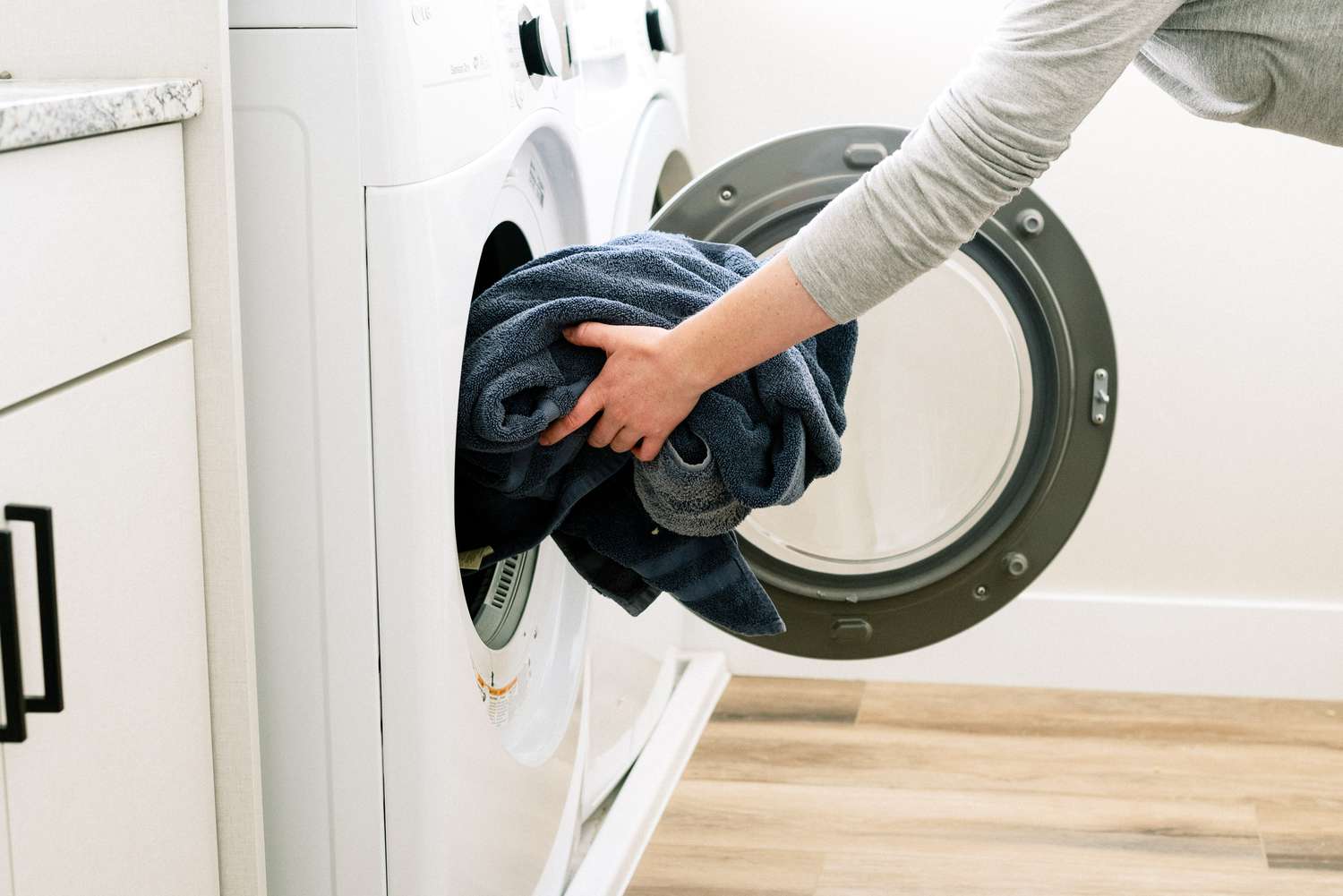

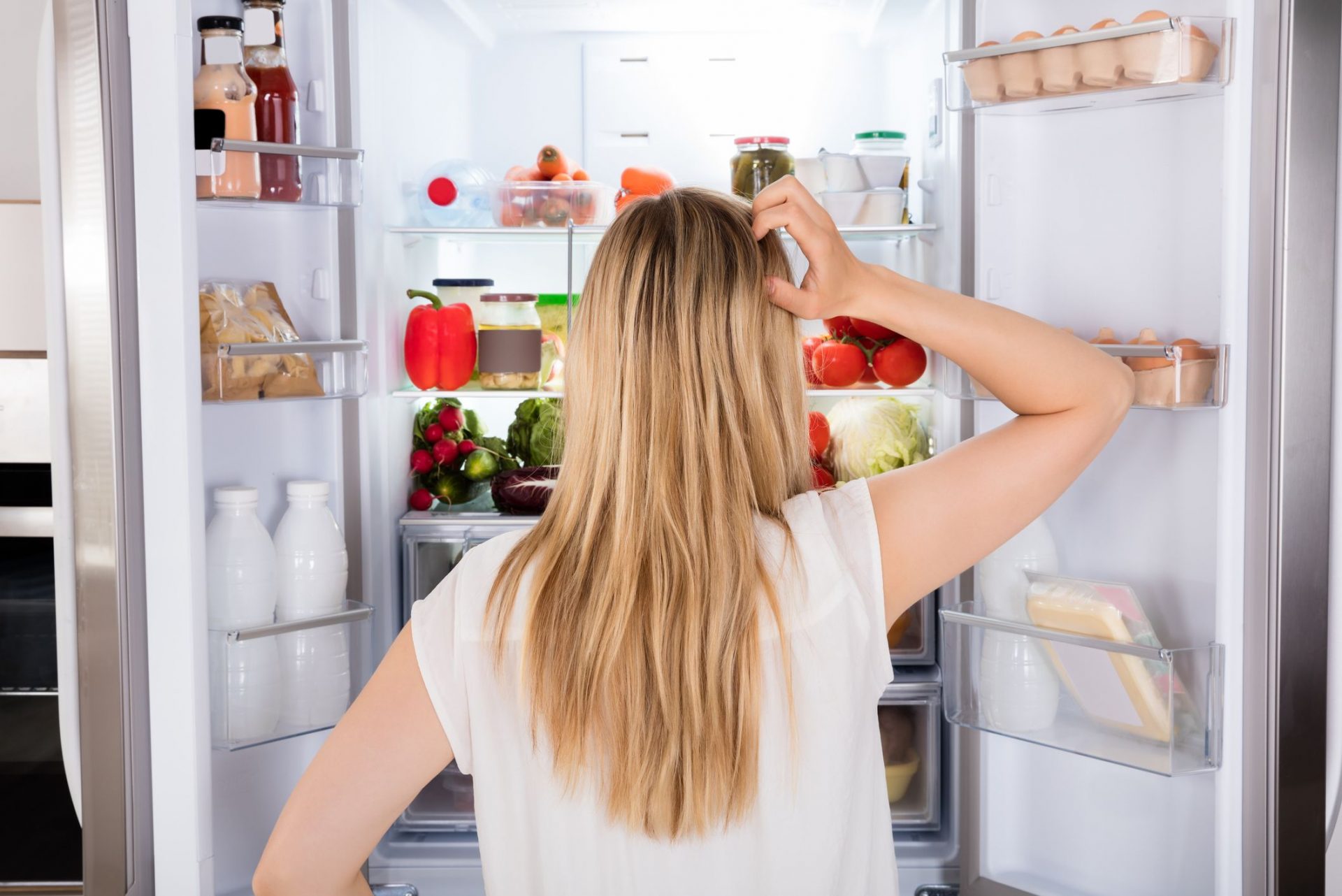

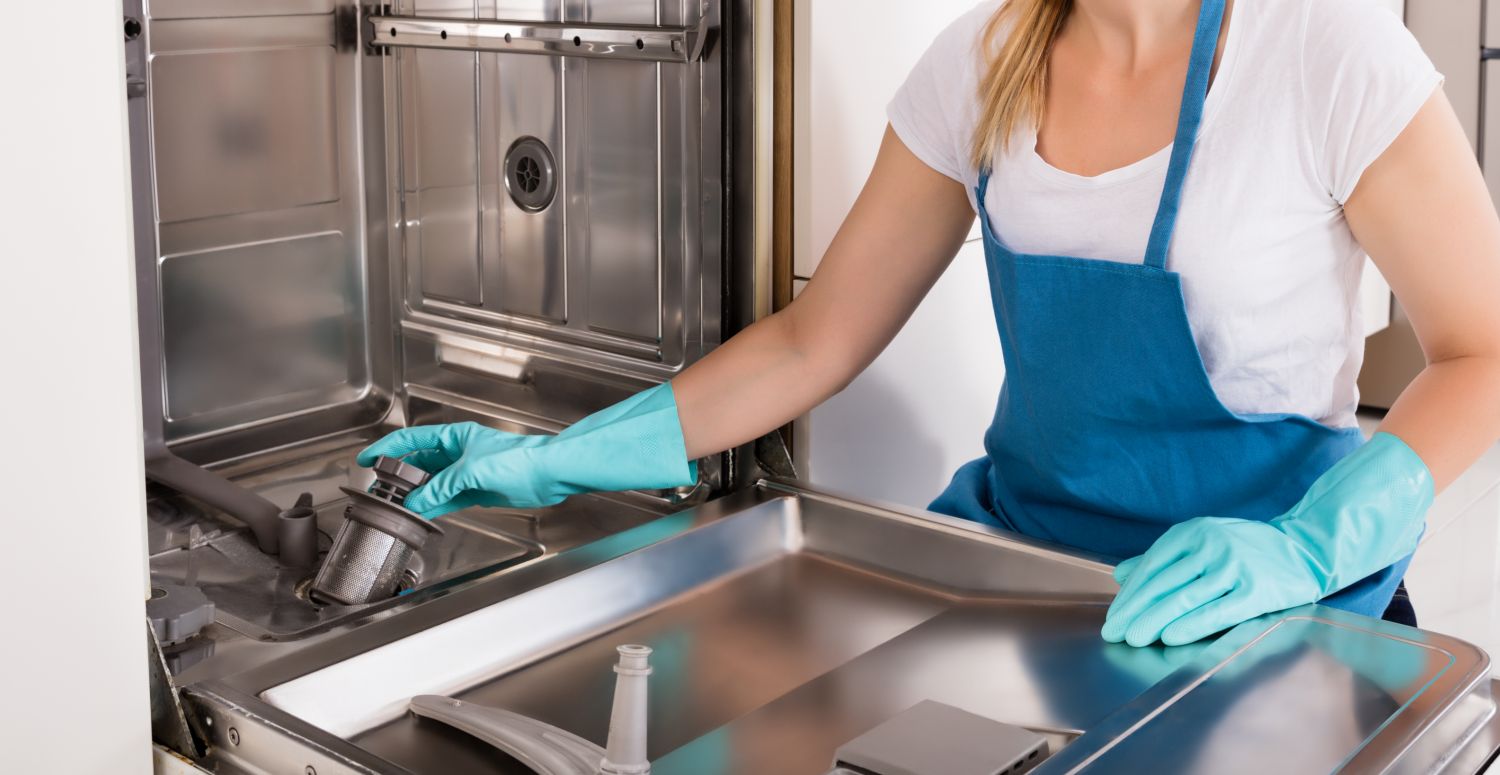





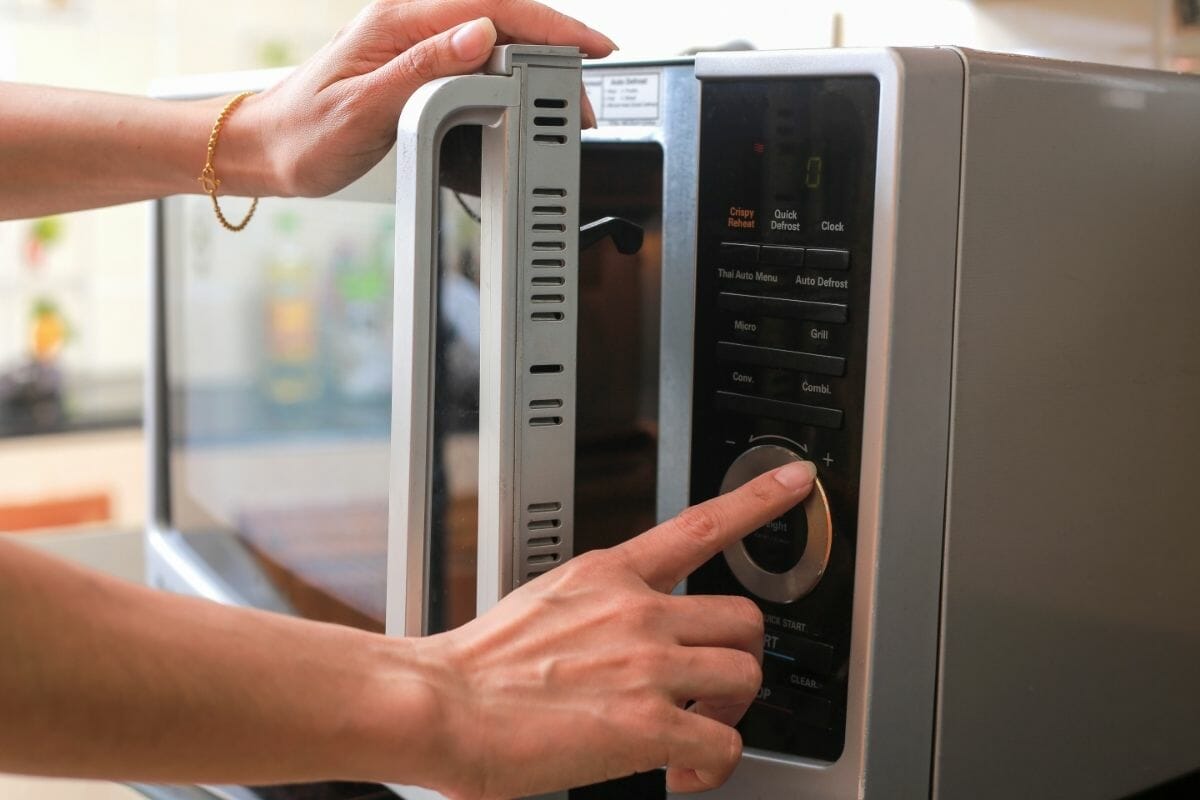


0 thoughts on “11 Things You Should Never Store In A Pantry, According To Experts”